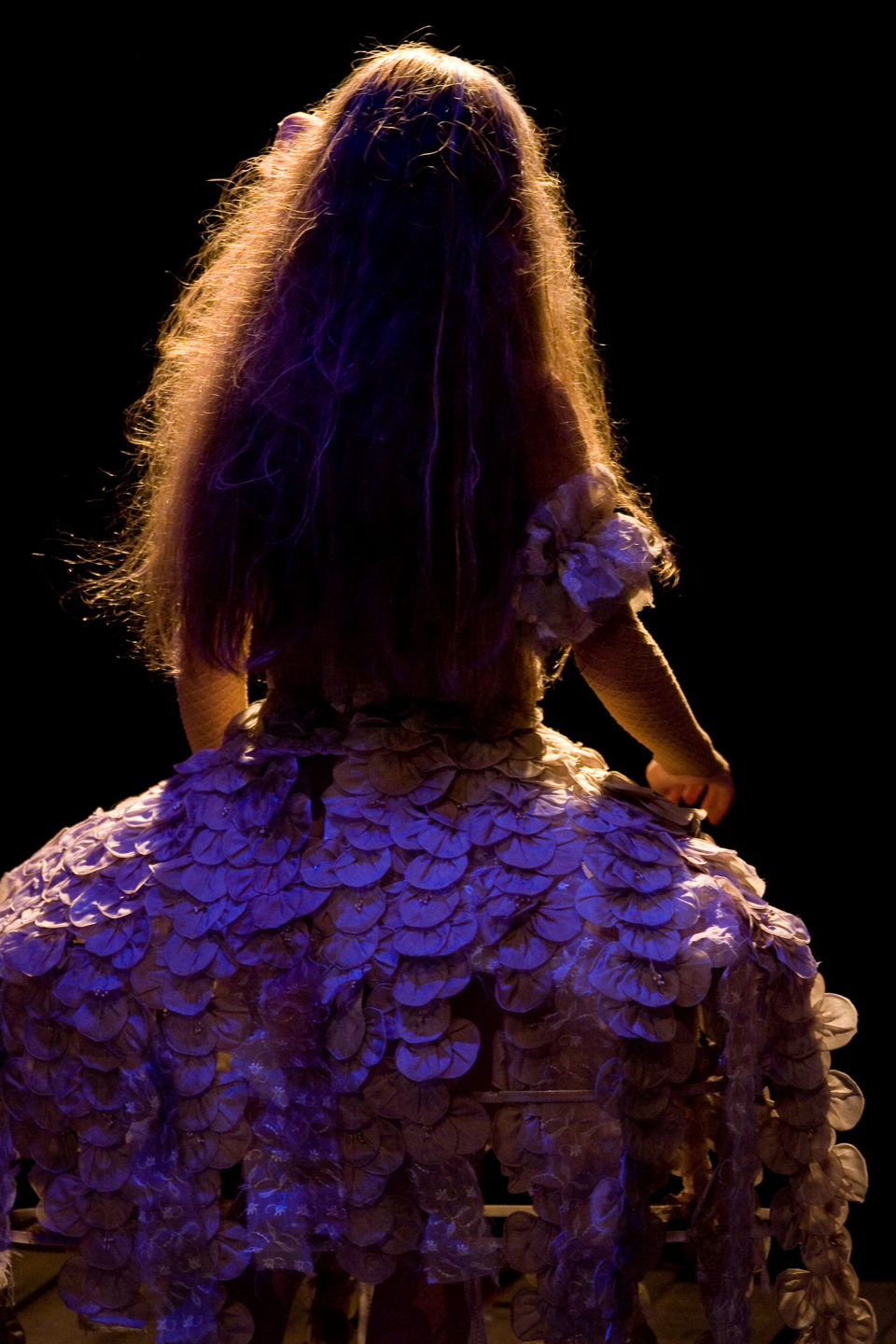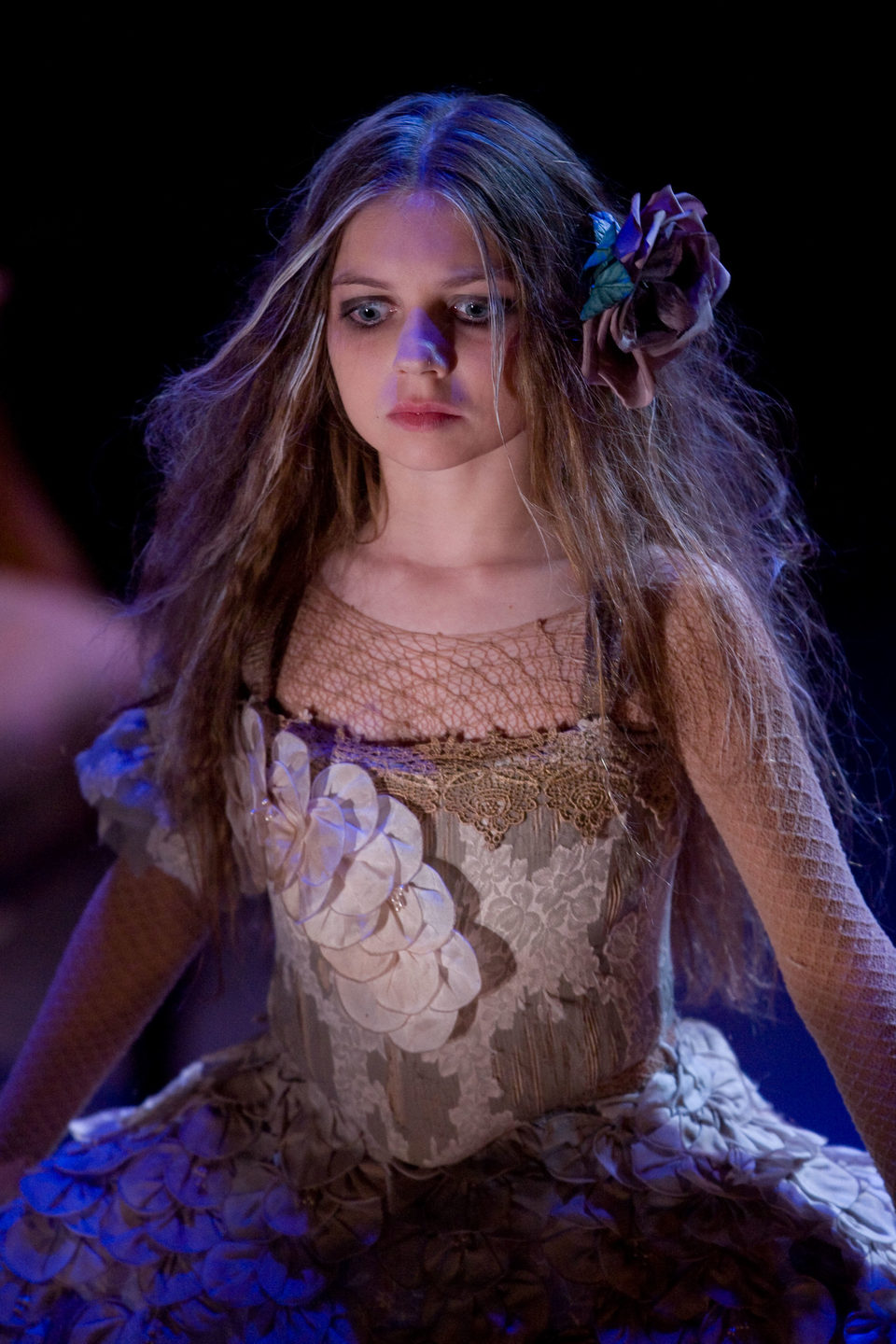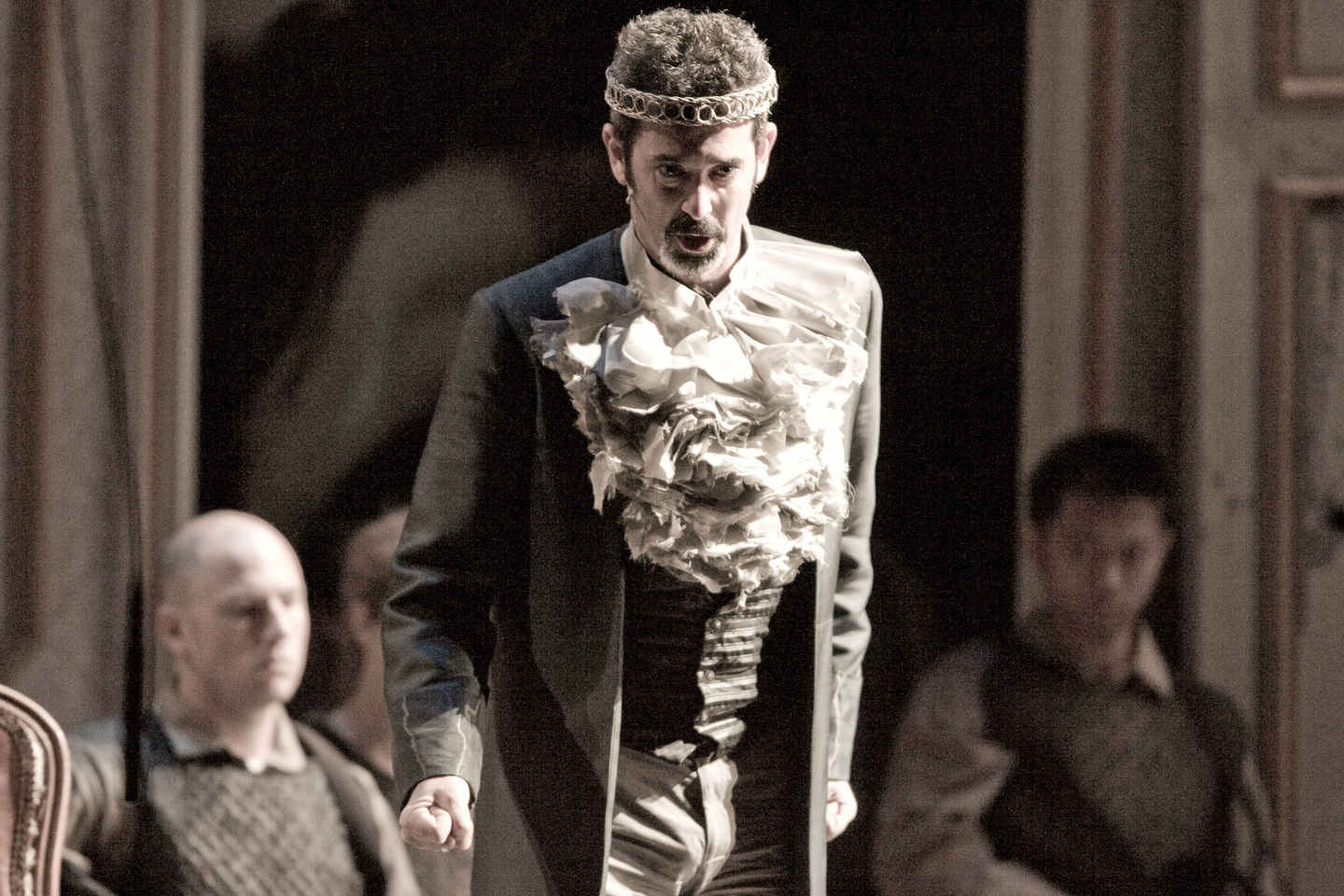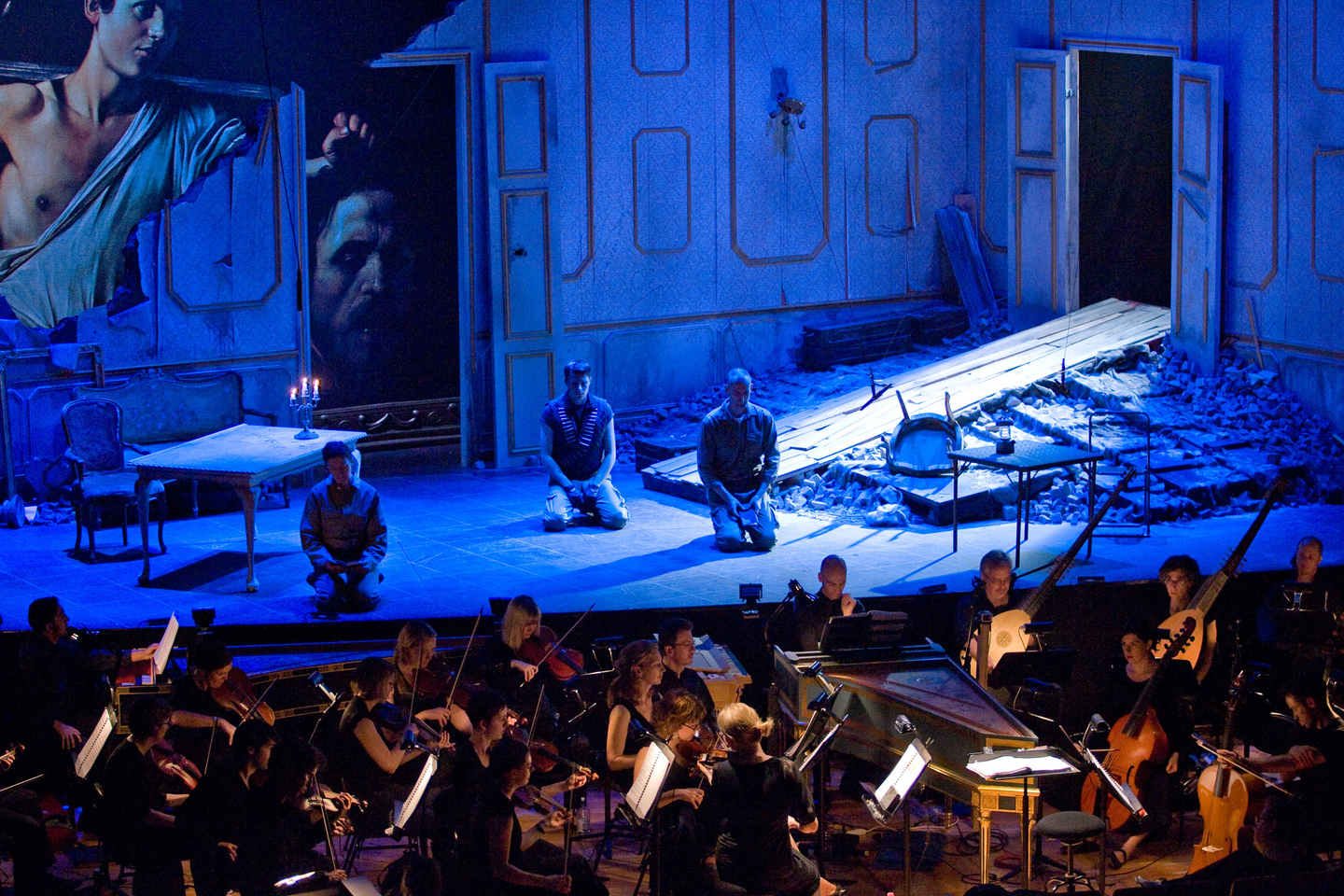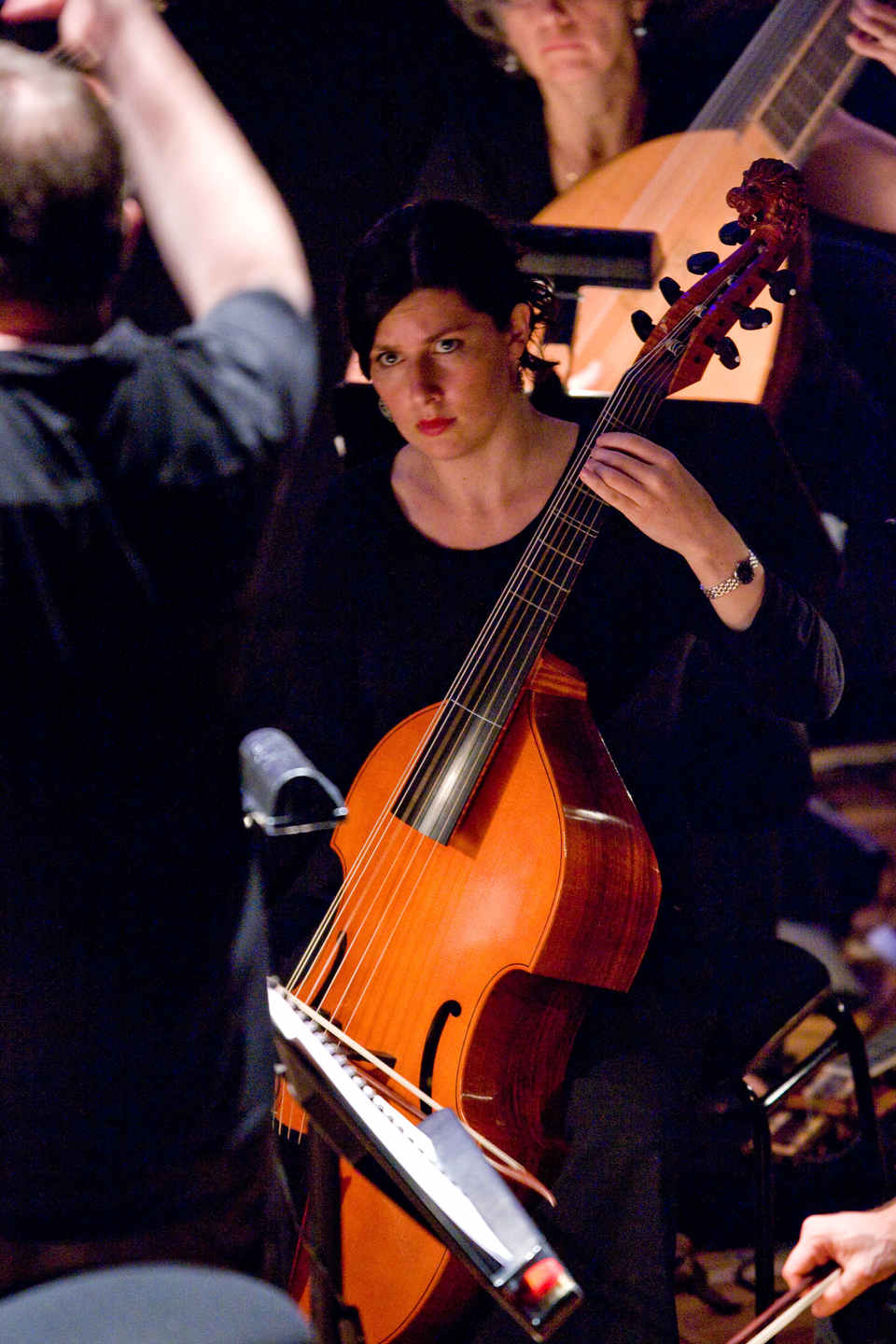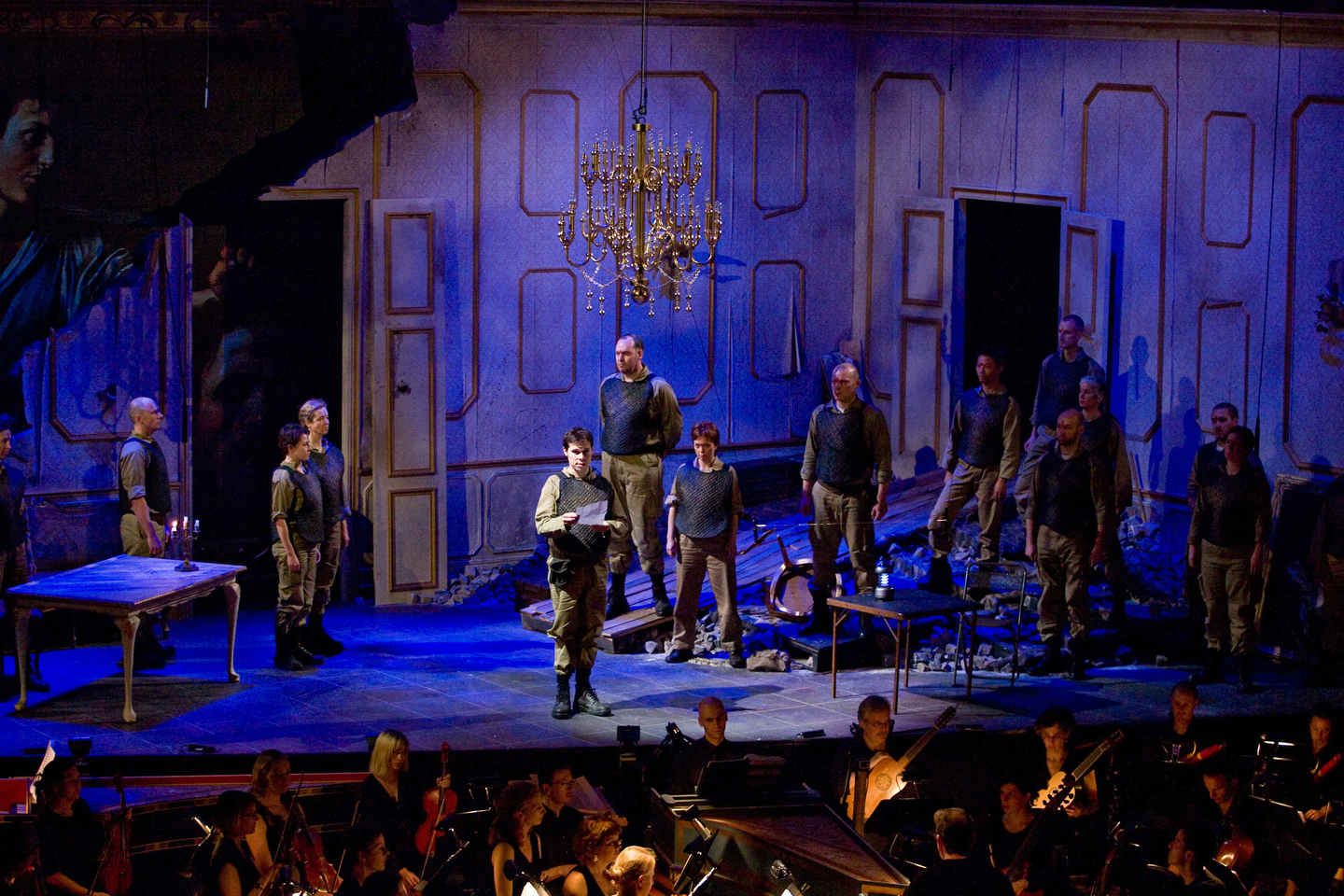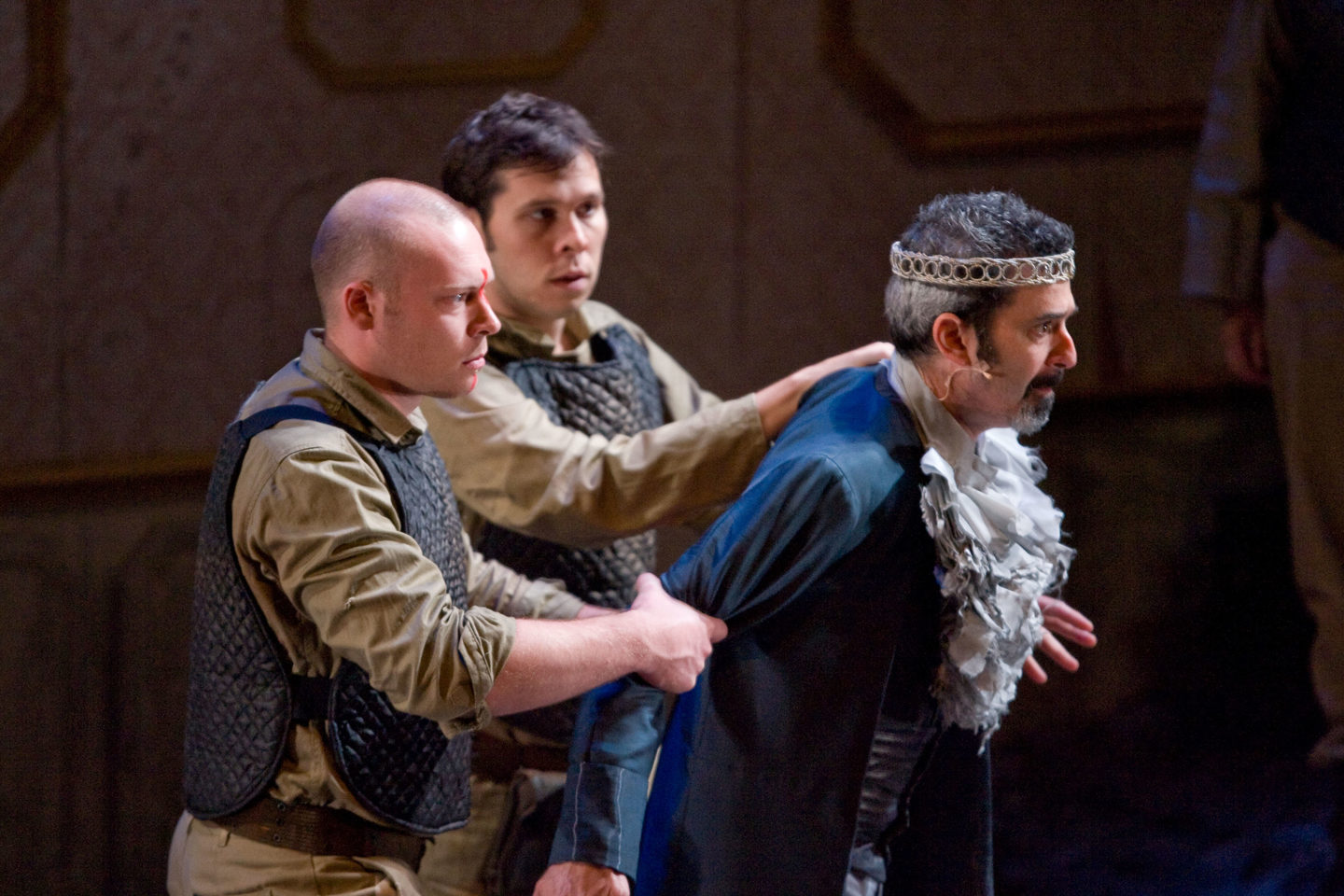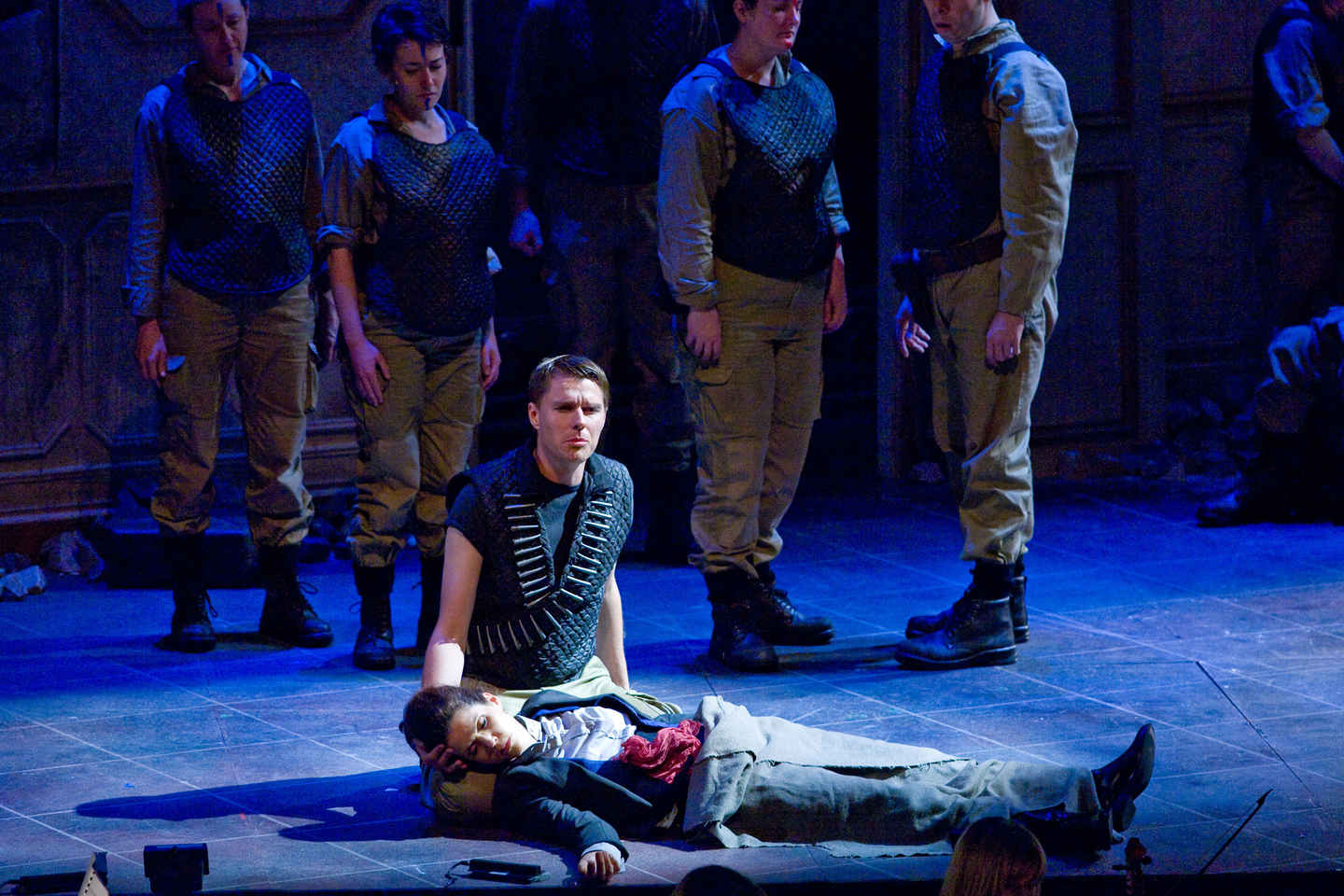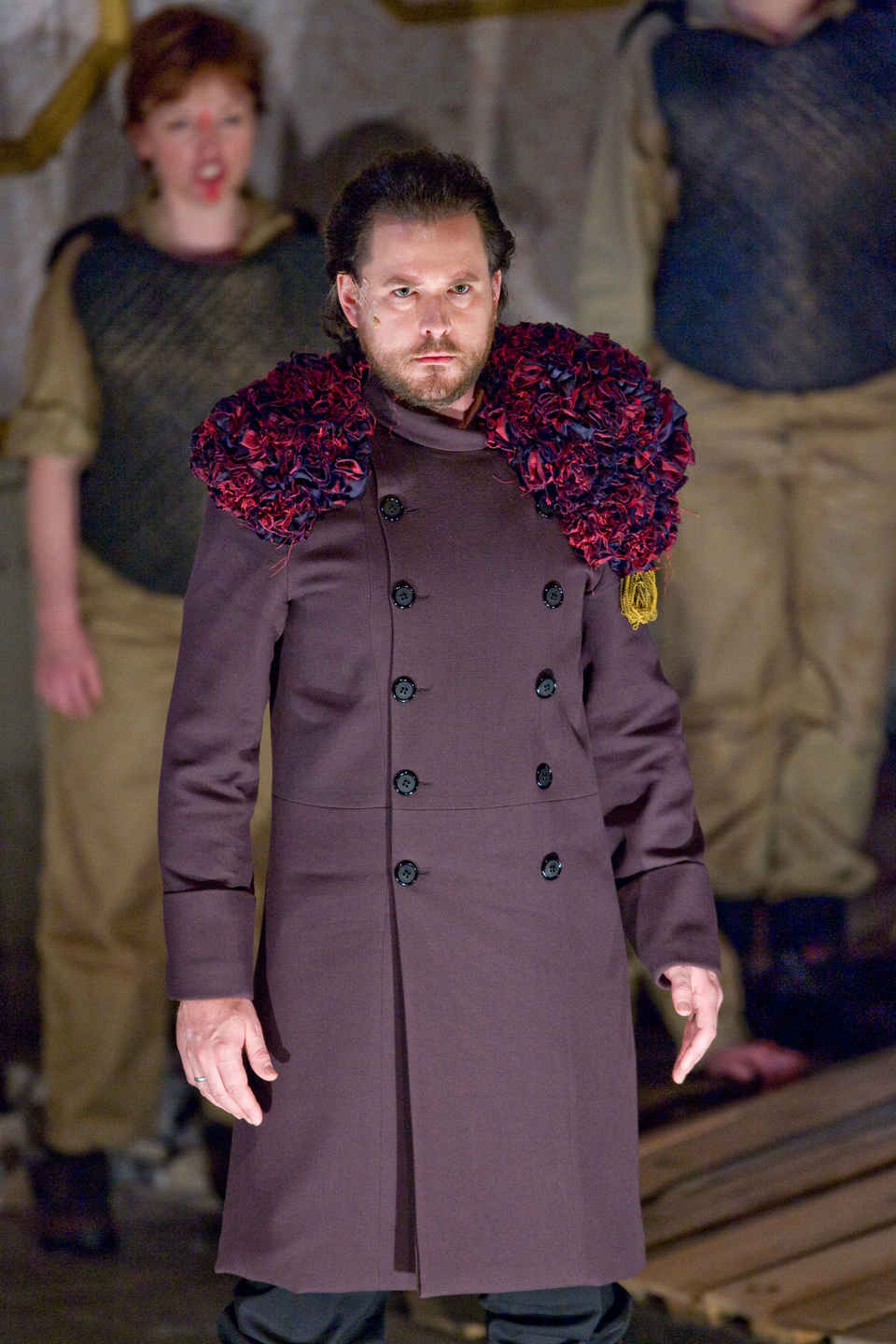Charpentier's David and Jonathan
David & Jonathan was, incredibly, written for a school speech day for Marc-Antoine Charpentier. The work was designed to be the musical reflection of a Latin play Saul, with each act following one of the play. Charpentier's music does not follow French opera conventions of the time, and is a remarkable composition and a great psychological drama. It also contains one of the strangest characters in opera - The Witch of Endor. In our production she was played by a child, but sung by a man. The ghost scene is chilling, and the drama and pathos of David and Jonathan's love, and Jonathan's ultimate death is tragic.
Full of beautiful choruses and orchestral movements, David & Jonathan is a unique and beautiful work.
REVIEWS
READ
1] David & Jonathan
Marc-Antoine Charpentier’s compositional output was defined, to a large degree, by the monopolistic royal privileges granted to his great rival Jean-Baptiste Lully (1632-1687). The elder Lully, a supreme strategist and consummate courtier who held Louis XIV’s almost unwavering favour, had at his exclusive command the musicianly forces of the Académie Royale de Musique from 1672 onwards. Lully countered any opposition to his operatic monopolies with a combination of criminal proceedings, lawsuits and litigious threats. Music was strictly curtailed in all theatrical performances apart from Lully’s own. It was forbidden ‘to perform any play set entirely to music, whether sung in French or other languages, without written permission from the aforementioned Sieur de Lully, at the risk of a fine of 10,000 livres and the confiscation of theatres, stagecraft, scenery, costumes and other things.’
The well-placed composer quickly amassed a fortune through the productions of his own works and successfully fought all attempts – legal or otherwise – to bring down his hated privilège. Composers like Charpentier who were denied the opportunity to put on public performances at court and in the opera theatre were compelled to constrict themselves either to private performances or to institutions and genres in which their cultural activities were not as closely regulated.
One of these institutions was the great Parisian Jesuit collège, Louis-le-Grand. The dramatic arts of oratory, rhetoric and music played an important part in the curricula of these all-male schools, as it was understood that performance could act as a kind of embodied catechism of Christian doctrine and thereby infuse the student with the Holy Spirit. The annual (sometimes biannual) theatrical performances at Louis-le-Grand were especially well regarded by Parisian society, having being first established very early in the 17th century in the form of Latin plays that accompanied a prize-giving ceremony for the students.
As Lully’s influence waned with the ailing health of the King, and the sovereign retreated into a more austere, religious existence, performances at Louis-le-Grand took on even more overt operatic guises. Lully had forbidden a performance there of a tragédie-ballet in 1677, but no such action was taken with following productions. By 1688 Lully was dead and Charpentier was emboldened to set his new Jesuit commission of David et Jonathas as a tragédie-lyrique structured in the manner established and perfected by his now deceased rival. Newspapers unequivocally called it ‘an opera’.
The biblical story of Jonathan, David and Saul was something of an idée fixe for the Collège. Since 1635 there had been five other productions on the same theme. The great preacher Jacques-Bénigne Bossuet had commented that it was by ‘the example of Saul and David that we may know the true sages from the false’, and so the well-known story of loving fidelity and the dangers of capricious jealousy was deemed a noble one for the elite students of the Collège. The custom was for the music to be set to French words and performed in between the acts of the Latin play. In the case of the 1688 production of David et Jonathas, the French words by Père Bretonneau were interposed between the five acts of a Latin tragedy by Père Chamillart, entitled Saül.
Only a summary of the Latin tragedy now exists, but it is clear that the bulk of the narrative action lay in the recitations of Chamillart’s play, as acted out by the students in rhetorical gestures taught to them following the precepts of Quintillian and Cicero. Charpentier’s musical contribution is set entirely in the camp of the Philistines, whereas Chamillart’s play takes place in that of the Israelites. Just like the sacred music of Johann Sebastian Bach, these were all-male productions, with the part of Jonathas, in this case, being played by an anonymous prepubescent boy.
Reaction to the first performance was overwhelmingly positive and it was, quite exceptionally, repeated at Louis-le-Grand in 1706 as well as being revived in other provincial and Parisian schools for up to forty years after the composer’s death. The fashionable Mercure Galant reported about the opera in the form of a letter to an imaginary correspondent, one seemingly ignorant of Parisian society:
‘I must tell you about three operas. One was performed by the Jesuits on the 28th of last month. Since you might be surprised about this, I’ll explain. The Collège Louis-le-Grand being full of boarders of the highest quality, and who leave it only to assume the highest positions of Church and State, the Robe and the Sword, it is required that these youths become accustomed to the boldness and the correct manner necessary for speaking in public. With that end in mind the Jesuits take pains to exercise [that skill] by performing two tragedies every year. […] Formerly these tragedies were interspersed only with ballets, because dance is quite essential for good deportment [bonne grâce] and corporal agility. Since the rise of music in popularity, however, it has been deemed appropriate to combine it [with drama], so as to make the entertainment complete. […] Beside the tragedy of Saül, which was performed in Latin verse, there was one in French verse entitled David et Jonathas. Since the latter was set to music, it is fitting that the work be called an opera. It could not have received greater applause, either in the rehearsals or in the performance. The music was by Charpentier whose works have always enjoyed great success.’
The reviewer politely notes that the production ‘would have pleased even more if they had had a greater number and quality of voices to execute them,’ underlining the youth and thinness of the original cast.Even if the structure of the work is in the fiveact- plus-prologue mould established by Quinault and Lully, there are many ways in which David et Jonathas, by virtue of its unusual dramatic design as well as its subject matter, escapes or subverts the conventions of courtly opera (tragédie-lyrique). Spectacularly, the opening prologue starts in media res, at it were, with Saul’s dramatic raising of Samuel from the dead. The usual model here was of an allegorical prologue formally divorced from the narrative proper. Charpentier’s modernist Italianate bent, something for which he was often criticised by Lullyists in the conservative tradition, is also in evidence throughout the five acts, with repetitions of large sections of musical material, sometimes almost in the manner of a da capo aria. His formidable contrapuntal skills, honed in Rome through his studies of the music of Carissimi and others, can be heard in the magnificent and solemn préludes to the airs of Saul and David in Acts III and IV. Dances are limited to brief nods to tradition at the close of each act and the chorus is visually attenuated by inventive deployment of off-stage singing. Much of the emotional power of the work comes from a sustained musical interest in the interior life of the characters, an approach that contrasted with the formal declamations of the performed Latin play, where dramatic content was complemented by a systemised vocabulary of stock gestures intended for the public arenas of church, law court and spoken theatre. Many of these same gestures found their way into the operatic performance where, combined with Charpentier’s music, their dramatic import must have been even more forceful and moving.
Charpentier’s careful use of tonality reveals that his interest in the subject was more than purely academic. (He would write on the expressive power of different keys in his 1690 Règles de composition.) His descriptions of the keys often complement the affective curves of Bretonneau’s text. The eerie Prologue is in G minor (‘Serious and magnificent’) and E-flat major (‘Cruel and hard’) whereas the celebrations of Act I are in D major (‘Joyful and very warlike’) and A major (‘Joyful and pastoral’). Saul’s complaints are frequently set in C minor (‘Gloomy and sad’) whilst Jonathan is often heard in A minor (‘Tender and plaintive’). Unusual orchestral effects colour the supernatural atmosphere of the Prologue. Muted strings playing en louré (repeated notes in bowed pairs) underline Saul’s horrifying desperation at the start of the work. Charpentier colours the otherworldly voice of Samuel with solo bowed basses in lieu of trombones, the typical instruments for such deathly scenes. As is usual for the period, the score’s orchestration is underprescriptive and vague, with scattered laconic marks for ‘flûtes’ or ‘violons’. In the majestic final act, however, Charpentier deliberately asks the wind players to take up the more funereal-sounding flutes, a timbre only relieved at the close with the festive final chorus.
Erin Helyard
2] Synopsis
Prologue: Saul entreates God to tell him the outcome of the forthcoming battle with the Philistines.
Receiving no response he seeks answers from the Witch of Endor. The witch raises the ghost of Samuel who prophesies the death of Saul and his son, and that David will be the next king of the Israelites.
Act I: Warriors, captives and shepherds sing praises of David, victorious in battle. Achis comes to meet David and tells him he will meet Saul and will intercede for peace rather than war.
Act II: Joabel, jealous of David’s fame and glory, decides to accuse David of treachery, and to play on Saul’s suspicions. Jonathan and David are reunited, and enjoy rest, love and peace for the moment.
Act III: Saul asks Achis to deliver David to him as a traitor. Achis refuses and tries to reason with him, letting David speak for himself. Saul, now convinced of David’s treachery, wonders if Jonathan too is disloyal, but decides that it is David alone. Jonathan and David appear before Saul and Jonathan pleads for David and their love, while Saul accuses David of plotting to kill him. David protests his innocence and leaves, which further convinces Saul that he is guilty. Joabel rejoices in the success of his plan.
Act IV: David declares his readiness before God for whatever comes. Seeing the danger that his choices are placing Jonathan in, David leaves him devastating them both. Battle is joined and Achis is determined to protect David.
Act V: Jonathan, mortally wounded, is brought to Saul. Saul, seeing both his kingdom and his son being taken from him, declares he will revenge himself with David’s death. Jonathan dies in David’s arms, and Saul kills himself as David will not. Achis, triumphant, tells David that Israelites have chosen him to be their King. David withdraws, his heart broken.
3] Marc-Antoine Charpentier – a short biography
Not a lot is known about Marc- Antoine Chapentier’s life. Patricia Ranum, a Charpentier scholar, suggests that he was a very private man who intentionally kept his life hidden. Fortunately, an almost complete collection of manuscripts of his compositions has been preserved and it is possible to stitch together an outline of his career from the trail of his musical works.
He was born in or near Paris, probably around the year 1645. (Ms Ranum argues that it was 1643). He was perhaps the son of a master scribe. Marc- Antoine received a thorough education, perhaps with the help of the Jesuits. He entered law school in Paris in October 1662, demonstrating in his entry in the register of the school that he was literate in Latin.
He was in Rome probably between 1667 and 1669, where he may have studied with Giacomo Carissimi, a very influential composer in the early Baroque period. Perhaps Charpentier originally went to Rome to study painting before he was discovered by Carissimi. What is clear is that he acquired a solid knowledge of the contemporary Italian music practice that he brought to France upon his return.
Back in Paris, Charpentier probably hoped to gain a position in the King’s court. But he found his way barred by Jean-Baptiste Lully, who controlled the musical life of the court and the jobs that were part of it. Considering his training, we might have expected that Charpentier would have become a major composer of opera, which was at that time developing as a lively aspect of Parisian cultural life. But Lully dominated that field as well and almost certainly prevented Charpentier’s entry.
Soon after returning from Rome, Charpentier was employed as house composer by Marie de Lorraine, duchesse de Guise. She remained his patron until her death in 1688, so although perhaps frustrated in a courtly career, Charpentier was assured a reasonably comfortable pension. During this time he composed a considerable quantity of dramatic secular vocal works as well as psalm settings, hymns, a magnificat setting, a mass and motets.
Beginning around 1672, he worked with Molière after the dramatist’s falling out with Lully, and composed incidental music to Molière’s plays. These included Le Malade imaginaire, Molière’s last play.
During the 1680s Charpentier served as maître de musique at the Jesuits’ Paris church of St Louis. David and Jonathan was a product of this period. In addition, Charpentier served as the music teacher to Philippe, Duke of Chartres. Charpentier was appointed maître de musique at the Sainte-Chapelle in 1698, a post he held until his death in 1704. This was a very prestigious position and Charpentier composed some of his greatest sacred music for the Sainte-Chapelle.
Charpentier died in Paris on 24 February 1704. After his death, he and his music were largely forgotten, even in France, and he genius has only been rediscovered and recognised during the last fifty years.
Ken Nielsen 2008
Sources and further reading:
The New Grove Dictionary of Music and Musicians
Catherine Cessac: Marc-Antoine Charpentier (1995)
The recognised biography, first edition translated into English by E. Thomas Glasgow
Patricia Ranum: Portraits around Marc-Antoine Charpentier (2004)
A fascinating piece of research and detective work

ARTIST INFORMATION
Anders J. Dahlin David
Sara Macliver Jonathan
Dean Robinson Saul
Richard Anderson Achis
Simon Lobelson Joabel
Paul McMahon the voice of the Witch
Madeleine Benson the Witch
David Parkin Ghost of Samuel
Andrei Laptev one of the people
Anna Fraser a shepherd
David Greco a soldier
Ashley Giles a follower of Jonathan
Cantillation, chorus
Orchestra of the Antipodes – Rachael Beesley, leader
Antony Walker conductor
Chas Rader-Shieber director
Brad Clark
& Alexandra Sommer designers
Bernie Tan-Hays lighting designer
Erin Helyard assistant conductor
Nicole Dorigo language coach
Maree Kanowski stage manager
WATCH
Gallery
We acknowledge the traditional owners of the land on which we work and perform, the Gadigal people of the Eora nation – the first storytellers and singers of songs.
We pay our respects to their elders past and present.
CONTACT
PO Box 291, Strawberry Hills, NSW, 2012, Australia
Ticketing and Customer Service 02 9037 3444
ticketing@pinchgutopera.com.au
info@pinchgutopera.com.au

© COPYRIGHT 2002 - 2025 PINCHGUT OPERA LTD | Privacy Policy | Accessibility | Website with MOBLE





